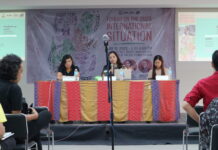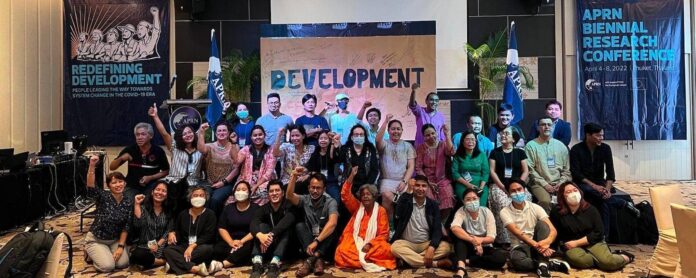Statement of the APRN Biennial Research Conference 2022
We, the Asia Pacific Research Network (APRN), along with people’s movements and CSOs of the region are taking on the challenges and multiple crises that the world face. We are determined to advance genuine development with an emphasis on the most marginalized and the sustainability of the planet.
APRN brought together people’s researchers and leading development workers from 11 countries to tackle head-on the crisis of development. APRN held its 4-day Biennial Research Conference 2022 in Phuket, Thailand through a hybrid setup for online and on-site participants.
Guided by the theme “Redefining Development: People Leading the Way Towards System Change in the COVID-19 Era,” the Conference focused on the people’s agenda. Central to this is the people’s demand for system change and for them to be at the forefront of paving the path for genuine development. In all the discussions and every research proposal, we have asked the important question–how will our work better serve the people to redefine development?
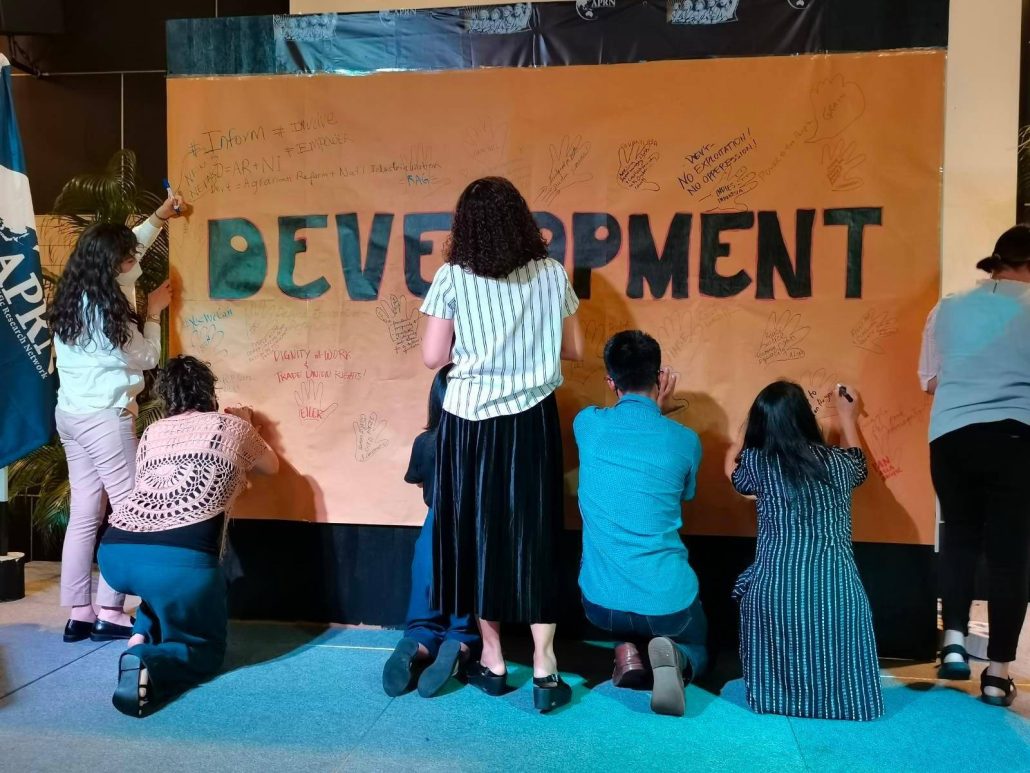
The challenge in a crisis stricken-world
The Biennial 2022 acknowledged that the world is indeed in turmoil. The crises confronting the planet and humanity are not just in the realm of the politics and economy. The environmental crisis is undeniably upon us. The COVID-19-influenced social crisis has further exposed the contradiction and inequality between the Global North and Global South, the ruling elite and the working people. On top of the conflicts happening in our homes and borders, the war in Ukraine is a flashpoint of an evolving multipolar geopolitics. The imperialist United States continues to lead the West in a rivalry with emerging imperialist powers over spheres of influence. This has led us to conflicts and wars waged over land, territories, natural resources, technology, finance, energy, social services, and the economy. Even in the Asia-Pacific, we are enduring the ripples of the conflict unfolding in Eastern Europe as prices of oil, wheat, and other basic commodities skyrocket.
In fact, the Asia-Pacific region has become the focus of the world as it emerges at the center of economic growth and demographic power. US and Europe may be the centers of power, wealth, and development but the future belongs to Asia. The imperialist powers have intensified their pivot to Asia as seen in the US’ Indo-Pacific shift and the Quadrilateral Security Dialogue (QUAD) of Australia, India, Japan, and the US. Meanwhile, the newly forged trilateral military alliance of the US, United Kingdom, and Australia or AUKUS claims to be a response to the growing security challenges in the Indo-Pacific region. The colonizers never really left.
In this current milieu, we are challenged to advance further the transformative role of people’s research. The important task now lies in interrogating global policies that govern our social, economic, and political realities in the framework of people’s development and in recognition of the planet as one organism. The opening keynote address clearly established the global situation and more importantly the challenge that lies ahead. People’s resistance and struggles are the only way forward. People’s researchers should support mass movements in creating genuine change and in developing empowered communities in a comprehensive and holistic manner.
Development Redefined
As we planned the research conference we aimed to redefine development based on the people’s realities and needs, for them to reclaim their power, and for the revamping of the dominant socioeconomic models that brought us to this crisis. It aimed to consolidate the people’s vision of what genuine development means on the global, regional, and national levels. Specifically, the research conference wanted to re-examine the 2030 Agenda for Sustainable Development and other development frameworks while highlighting the people’s alternatives.
The Network also intends to put together policy recommendations and alternatives to existing policy directives affecting the people in the region. The research conference also sought to produce research initiatives that will translate to campaign and advocacy plans for the whole Network.
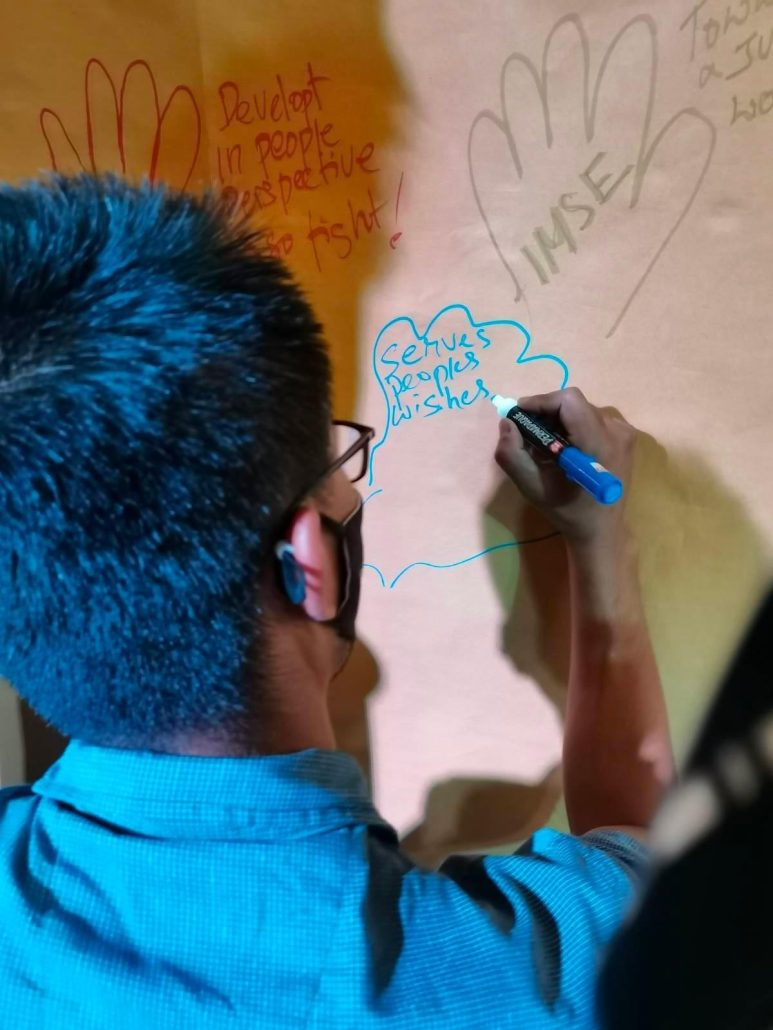
Towards Genuine Recovery and Economic Justice
We particularized on the economic conditions from the ground and covered topics on transnational corporations (TNCs) responsible for massive landgrabbing and slavery-like practices. The impact of free trade agreements and other trade deals in the region have also been the focus of some of our research. More importantly, the Conference has created the venue to highlight the people’s alternative to the current economic and structural system.
As we do our research work in further exposing the implications of multilateral agreements, we also renewed our commitment to campaign against them. In particular, the newly signed Regional Comprehensive Economic Partnership (RCEP) will have far-reaching implications across sectors and communities. Also, we have asserted for a new world order without the moribund World Trade Organization which is recently responsible for the deaths of millions of people deprived of COVID-19 vaccines. In turn, we have proposed the need for a new international economic order in trade and development premised on the benefit of the people.
Ultimately, programs and plans for a genuine recovery from the economic crisis brought about by the pandemic can only come from those most affected. The same way that economic justice can only be achieved through the collective efforts of the people.
The Path towards a Just and Lasting Peace
Research proposals on peace and security have been one of the highlights of the Conference. We have manifested our opposition against old and new military alliances led by imperialist nations. In the process, we have collected experiences and practices of communities and movements resisting militarism, imperialist aggression, and state-sponsored attacks. In the end, our research further highlighted the growing people’s resistance.
We have come to realize the need to enjoin the youth and bring them to the people’s movement amid the growing wave of right-wing extremism. Our work also includes bringing the voices of the marginalized and vulnerable sectors to policy arenas. While exhausting all accountability mechanisms of the United Nations, we have to strengthen cross-sectoral, cross-country people-to-people solidarity. As people’s researchers, it is our task to advance people’s rights and support the global movement for just peace.
Solidarity and Action Towards a Better Global Order
The research topics have covered issues such as the alarming food crisis exacerbated by the pandemic, China-funded projects threatening the lives of indigenous peoples, and violence against women among others. Despite the intensifying threats and vulnerabilities, we recognize the people’s decisiveness to resist and rebuild their lives through solidarity and action.
The Conference has paved the way for a deeper understanding of our role as people’s researchers. Our task is not only to describe the myriad of crises the people are facing in their communities but to underscore how they become drivers of development themselves.
The alarming food crisis, as raised in our sessions, has led communities to fight for a radical transformation of food systems. It is imperative that we highlight such actions from the ground in our research work.
In fact, the Biennial 2022 has documented and witnessed these promising trends. The youth is now at the forefront of a renewed climate activism. Also, there is now wide recognition of the intricate relationship of human beings with nature. We have heard the inspiring stories of community care and solidarity among marginalized groups during the pandemic. At the same time, people are pushing back and have inspired one another to challenge authoritarian regimes. Indeed, there is a growing realization that what we need now is no less than system change.
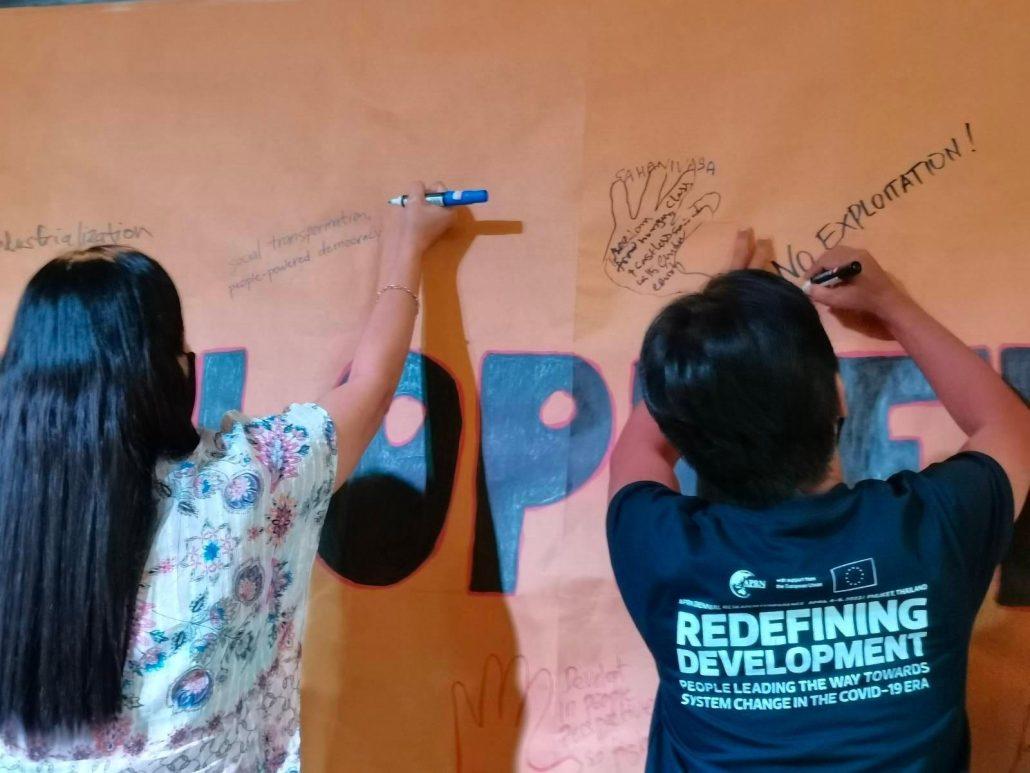
Our commitment to the people
APRN and its members vow to strengthen its commitment to support the people’s struggle for system change. We, as a network of researchers, recognize that the true drivers of development are people themselves.
We shall continue to advance the transformative role of people research. Alongside, we affirm that the process of system change is the solution to actualize genuine sustainable development.
We shall continue to raise capacities and help empower the people to claim their rights.
Finally, we shall assist in linking communities with one another, building solidarity between communities, within countries, and across the region towards movement building.#

